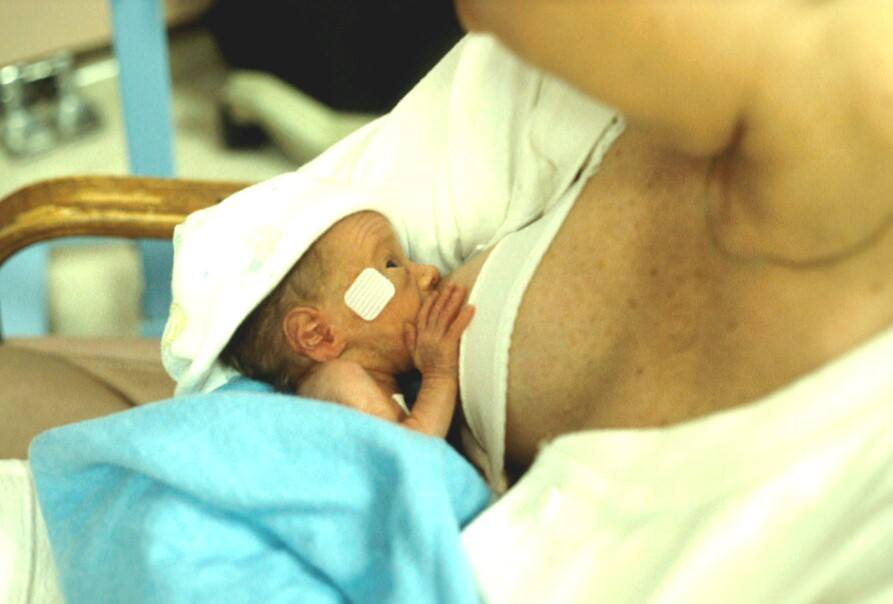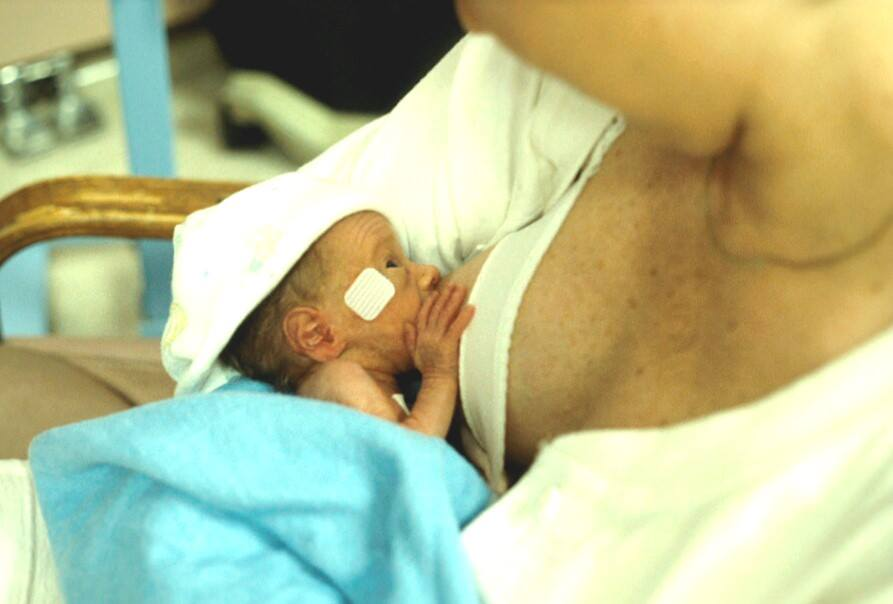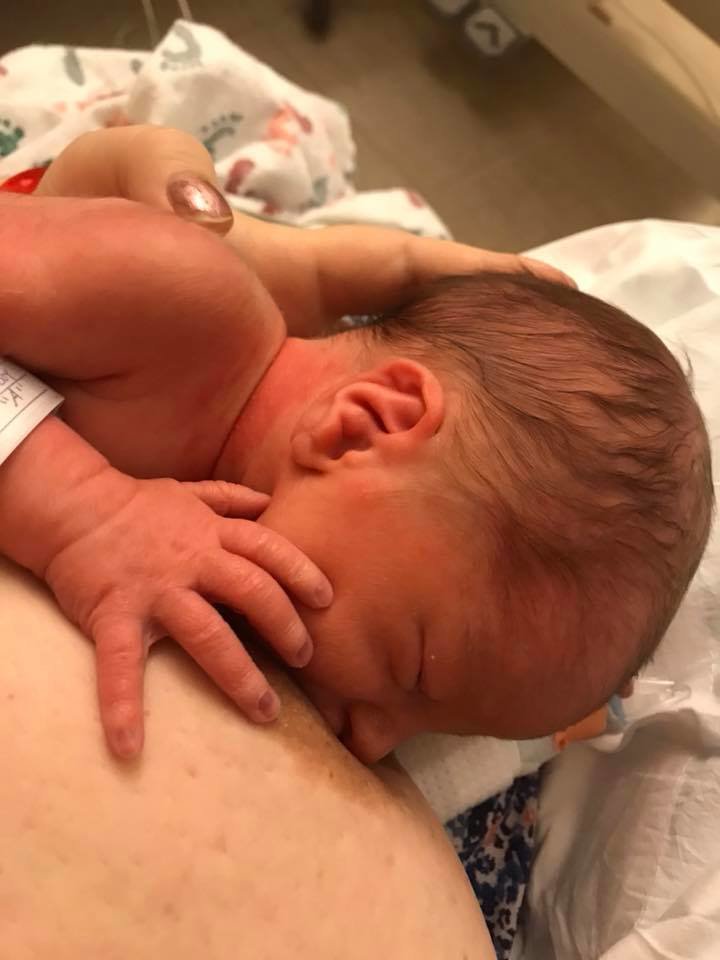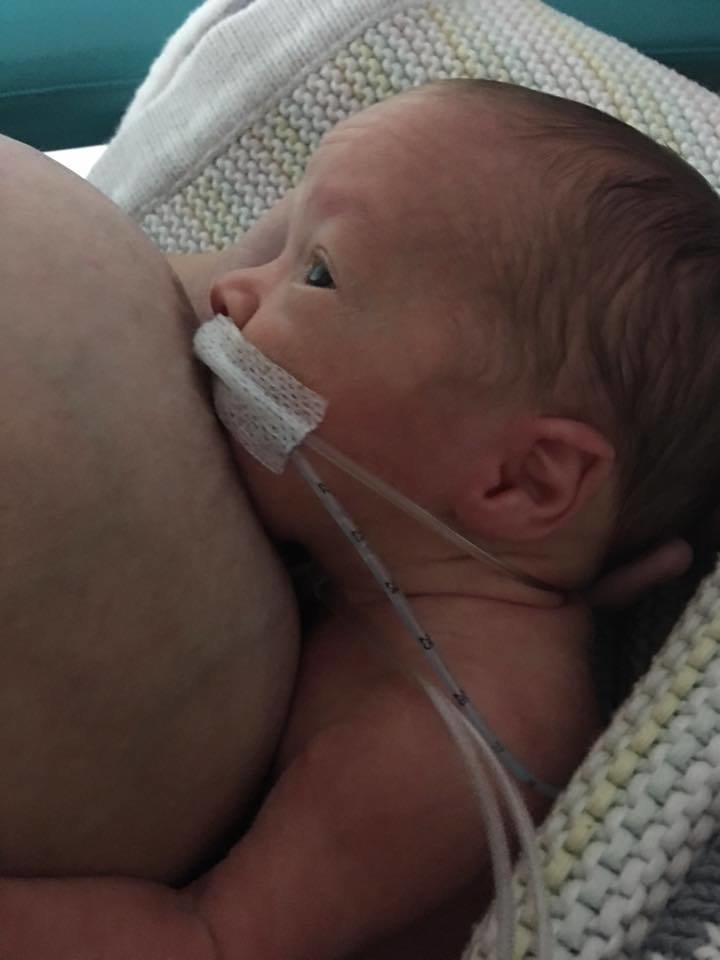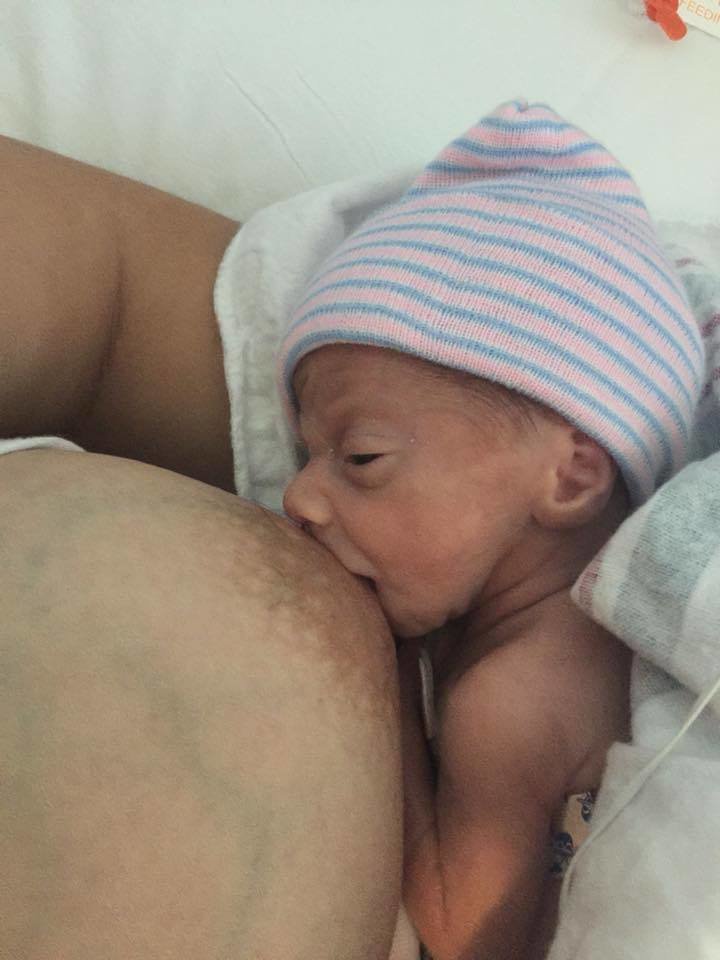He explains to CafeMom that many moms are instructed not to try nursing their preemies until weeks later because research has shown that bottle-fed preemies are at risk for apneas and bradycardias. “But bottle-feeding is not breastfeeding, and breastfed babies are much less likely to stop breathing or have slow heart rates when they are younger than 34 weeks’ gestation,” Dr. Newman tells CafeMom. However, that isn’t the biggest reason, in his opinion, that preemie moms are kept from breastfeeding. “Most of all, [it’s] because most neonatologists, pediatricians, and NICU nurses don’t know the first thing about breastfeeding, not practical ‘hands on’ breastfeeding,” he says. More from CafeMom: Both Formula & Breast Milk Were Put to the Test — but Only 1 Wiped Out This Bacteria According to Dr. Newman, some of the simply false breastfeeding misconceptions that people need to realize include: that babies should only be able to start trying to breastfeed at 34 weeks’ gestation, that breastfeeding is tiring for babies, and that all preemies need the breast milk to be fortified. “That a 31 week gestation automatically needs ‘fortification’ of the milk is nonsense,” he says. “Some pediatricians/neonatologists are so hopped up on fortification, that they tell mothers to fortify the milk until the baby is 10 months of age. That is absurd.” Dr. Newman explained that much of this hesitation to start letting a preemie breastfeed comes from outdated information that hasn’t progressed with the times, because breast milk is considered “uninteresting” when compared to everything else that it takes to save a preemie’s life. “What we believed about premature babies and breastfeeding 50 years ago, well, no point in looking any further, it’s all the same, doesn’t change. In fact, we believed that breastmilk was ’low tech’ (after all, made by women, so … must I say more?),” he wrote on the IBC website. “And then we started to find out more: that breastmilk made by the mother of a premature baby was tailor made for the needs of the premature, different than the milk of a mother of a baby born at term; we learned that breastmilk contains all sorts of very important compounds we never suspected even existed even just a few years ago …. And so, breastmilk became high tech and worthy of interest, especially by formula companies who realized the marketing potential immediately. But breastfeeding? Still ’low tech.’” More from CafeMom: Mom Seriously Confused After Her Breast Milk Turns Bright Pink Dr. Newman points to evidence from Scandinavia that supports these moms and clearly shows babies can go to the breast well before 30 weeks’ gestation and as early as 27 weeks. “Not only can they go to the breast and latch on, but also, they actually can be getting milk from the breast by 28 to 30 weeks gestation, 4 or more weeks before in North America, they are even ‘allowed’ to go to the breast,” he wrote for IBC. Although it took this baby three months before she was able to exclusively breastfeed, Dr. Newman doesn’t agree that it’s because preemies don’t have the stamina for it and hopes to correct this misunderstanding. “Unlike what many neonatologists believe, breastfeeding does not take more energy than bottle feeding and does not tire the baby out. That is an error based on the observation that babies tend to fall asleep at the breast even though they may still be hungry,” he wrote for IBC. “But they don’t fall asleep because they are tired or that breastfeeding takes up a lot of energy. They fall asleep because babies respond to the flow of milk from the breast. If the flow of milk is slow, the baby tends to fall asleep.”
